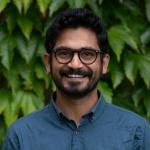A New Language for Housing Justice?

If you’ve been following the news in India, there is a slim chance you’d have missed the ongoing demolitions. The pace picked up in 2022, when the state used demolitions to deliver majoritarian forms of “justice.” While they have taken a particular form in Uttar Pradesh, the same methods have been deployed in Delhi, Uttarakhand, Jammu and Kashmir, and Assam. On one hand, the charges of “illegal construction” are being directly used against Muslim minorities to further disenfranchize them.





